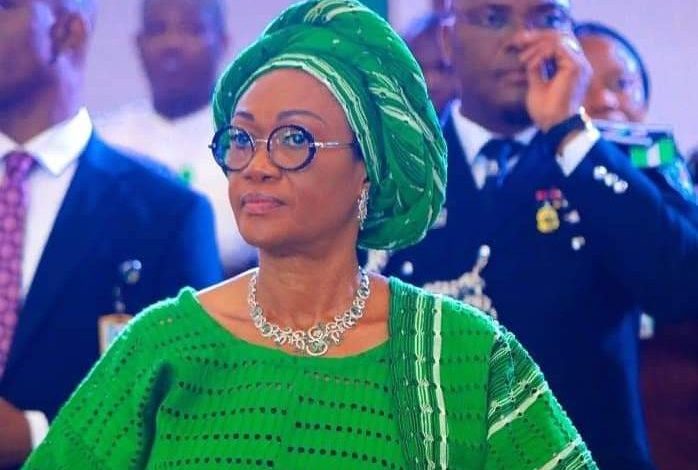First Lady Oluremi Tinubu Calls for Action Against Gender-Based Violence

By DAYO ADESULU
As the global community marks the International Day for the Elimination of Violence Against Women, Nigeria’s First Lady, Senator Oluremi Tinubu, has called for urgent and collective action to combat gender-based violence (GBV).
In her statement shared on X, the First Lady highlighted alarming statistics, including that nearly one in three women worldwide experiences physical or sexual violence during their lifetime. She also drew attention to the persistence of harmful practices like child marriage and female genital mutilation (FGM), which continue to affect women and girls, particularly in rural and underserved communities.
Global Context and 16 Days of Activism
The International Day for the Elimination of Violence Against Women, observed annually on November 25, was established by the United Nations in 1999. The date honors the Mirabal sisters, Dominican activists assassinated in 1960.
This day also marks the start of the 16 Days of Activism Against Gender-Based Violence, a global campaign running until December 10 (International Human Rights Day). The campaign aims to raise awareness, mobilize action, and promote solutions to eliminate GBV.
The First Lady’s Recommendations
Senator Tinubu emphasized the need for:
- Timely Prosecution of Perpetrators
She called for swift justice to deter GBV and provide closure to survivors. - Support for Survivors
Increased resources and services for victims were highlighted as critical to breaking cycles of violence. - Formal Education for Girls
She described education as the “key” to empowering girls to make informed choices and resist harmful practices. - Collective Action
Collaboration across societal sectors was stressed as essential for creating lasting change.
“Let us work together to ensure a safer society where everyone, regardless of gender, can live without fear of violence,” she urged.
Stakeholder Reactions
- Amina Yusuf, a gender rights advocate, commended the First Lady’s focus on education, stating that empowered girls are better equipped to resist harmful practices.
- Chidi Nwosu, a legal expert, emphasized the importance of pairing prosecution efforts with community-based prevention strategies.
A Call to Challenge Harmful Norms
The First Lady underscored the role of society in challenging harmful cultural and religious norms that perpetuate GBV. She encouraged Nigerians to actively promote equality and advocate for safer environments.
Her statement resonates as a rallying cry for nationwide efforts to end gender-based violence and promote human rights for all.





